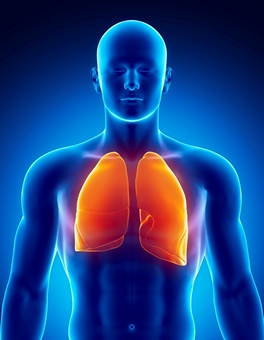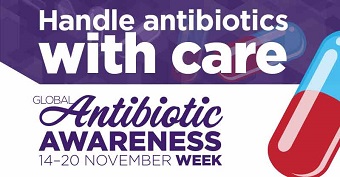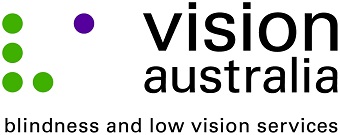Community Health News – Nov ’16

Letter to clients with a home care approval
Until mid-December the Department of Health is sending tailored letters in stages to clients with an existing approval for home care.
The letters are about what the changes to home care packages will mean to individual clients and their situation.
Clients may take action depending on whether they are:
- receiving care at their approved level – to raise their awareness of the home care reforms and that they can change providers from 27 February if they want to (no action required)
- receiving care at an interim level – to re-assure them that they will continue to receive home care services at the current level and will be automatically placed on the national priority queue for their approved level (unless they notify My Aged Care otherwise)
- approved but not yet receiving care – to advise them that their home care approval will move from a broad-banded level to specific level 1,2,3 or 4. Depending on whether the client holds either a recent or historic (pre 1 July 2016) home care approval, they may be automatically moved onto the national prioritisation queue on 27 February, or required to call My Aged Care to confirm their intention to continue seeking home care services.
A fact sheet has been developed to support providers to explain the changes to clients who may contact them after receiving their letter.
View or download the fact sheet Supporting Client Discussions.
A range of other support materials for consumers and providers about the changes are available on the department’s website.

New online counselling website to help people affected by substance abuse
The Minister for Health, Sussan Ley, said as part of the Australian Government’s $298.3 million National Ice Action Strategy, Turning Point Alcohol and Drug Centre will provide an enhanced national online counselling service to support people affected by substance misuse.
“This new national service complements the Australian Government’s additional drug and alcohol treatment funding to Primary Health Networks ensuring a range of treatment options are available for people affected by ice or other methamphetamines and their families – no matter where they may be around the country – who want to take that vital first step and reach out to seek help,” Minister Ley said.
“The 2015 National Ice Taskforce Final Report recommended improving access to online interventions, including ice-specific counselling and self-help options, as a priority in delivering treatment and support for users and families.
“There’s also evidence that online interventions are successful in engaging people affected by drug and alcohol misuse including ice, who are less likely to seek help through more conventional face-to-face treatment services.
“More than 60% of those who previously contacted Turning Point’s 24-hour counselling service were making contact for the first time, so the expansion of this service is an important resource in the fight against the scourge of ice.”
Turning Point’s expanded services now include:
- a moderated peer forum that provides online communities with support and information for drug and alcohol-related issues, as well as opportunities to discuss strategies for recovery;
- self-help modules with tailored guidance for individual needs; and
- new tools, such as an SMS subscriber service, which sends supportive messages at critical time periods throughout the week to reduce the risk of relapse.
Minister Ley said the new free service is now available and will provide the community with 24/7 support.
The Counselling Online website is accessible at www.counsellingonline.org.au on a range of mobile devices including smart phones and tablets.
Source: Australian Journal of Pharmacy (online)

Did you think about your lungs this Lung Health Awareness Month?
Lung health was the topic of conversation around Australia this November, in support of Lung Health Awareness Month. Lung Foundation Australia is encouraging all Australians to take their lung health seriously and recognise symptoms early in both themselves, and loved ones.
Health professionals can help to spread the word by getting involved. There were a number of activities happening around the country including:
- World COPD Day was on 16 November. Visit the website at www.worldcopdday.lungfoundation.com.au to find out more.
- Lung Cancer awareness events, 1-30 November. Events included BBQ events, walks or morning tea gatherings.
- Patient stories at www.justonebreath.com.au. Share these poignant personal stories of people who live and manage lung disease on a daily basis, demonstrating there is no stereotypical face of lung disease in Australia; lung disease can affect anyone.
You can also take the Lung Health Checklist – it only takes a few minutes, and the simple questions will help to recognise symptoms of lung disease and the need to act promptly.
For resources and information visit www.lungfoundation.com.au or phone our free call Information and Support Centre on 1800 654 301.

Antibiotic Awareness Week
Antibiotic Awareness Week was held from 14-20 November, with the theme ‘handle antibiotics with care’. Antibiotic Awareness Week is a global event involving key organisations collaborating to spread knowledge about antibiotic resistance.
The development of antibiotics was one of the most important advances in medicine. Now bacterial infections that were once easily cured with antibiotics are becoming harder to treat. Antibiotics are losing their power – but we can preserve the miracle of antibiotics by handling them with care and by using them only when they are necessary.
If you’re a health professional, it’s important to only prescribe when necessary to
preserve our existing antibiotics, as well as establish patient beliefs and expectations.
Your prescribing matters to your patients and the community.
- During the week, health professionals were encouraged to have the sometimes difficult conversations with patients when antibiotics are not appropriate.
- Individuals were asked to ‘take the pledge’ to fight antibiotic resistance.
- Special screenings of the documentary film ‘Resistance’ took place at select venues across Australia to encourage discussions on this growing global health threat.
To find out more about the campaign, CLICK HERE.

NSW Pain Management Plan Evaluation Survey – Have your say!
Painaustralia is assisting The NSW Agency for Clinical Innovation Pain Management Network to conduct a survey to evaluate the impact of the NSW Pain Management Plan 2012-2016 on the consumer experience of accessing tools, resources and services for the management of chronic pain and to improve care provision.
The survey is voluntary and designed to collect de-identified information from people (child or adult) with chronic pain (or their carer) willing to share their experience managing chronic pain. It is hoped that through this process gaps and deficiencies can be identified and resources, training and systems can be improved to address these gaps. The results will be available on the ACI website at the conclusion of the project.
Parent/Carer Survey Link: https://www.surveymonkey.com/r/ACI_PMP_Parent_Carer
Patient Survey Link: https://www.surveymonkey.com/r/PMP_Patient_Survey
If you are working in a pain clinic we would be grateful if you could make the survey available to your patients. Thank you in advance for participating. Your responses are invaluable to advancing research into the management of chronic pain and in improving support for people experiencing chronic pain.
For a paper version or to receive the survey link via email, please contact:
Andrey Zheluk, HealthConsult
e. mandrey.zheluk@healthconsult.com.au
p. 02 9264 1805

Understanding vision loss: Vision Australia launches new website
Vision Australia has launched seelikeme.org, a website showcasing inspiring stories of people living with low vision and achieving great things. With an estimated 357,000 people in Australia who are blind or have low vision, the website allows you to meet some of them and read about their lives.
Vision Australia research suggests there is a general misperception in the community that eyesight can be either described as “sighted”, “having to wear glasses” or “blind”. But it’s not that simple. Common eye conditions like macular degeneration, cataracts and glaucoma can cause severe vision loss and impact people’s lives. But it doesn’t mean people have to stop achieving things or doing the things they love. This is why seelikeme.org was created.
Vision Australia supports people of all ages who are blind or have vision loss that cannot be corrected by glasses or cured. People can be referred to Vision Australia at the same time as an initial referral to an ophthalmologist, or when they feel their glasses are not working, they’re bumping into objects, losing their balance, and so on.
CLICK HERE to download ‘How to spot the signs of vision loss’ fact sheet.
Other fact sheets:
[contentblock id=1 img=gcb.png]
